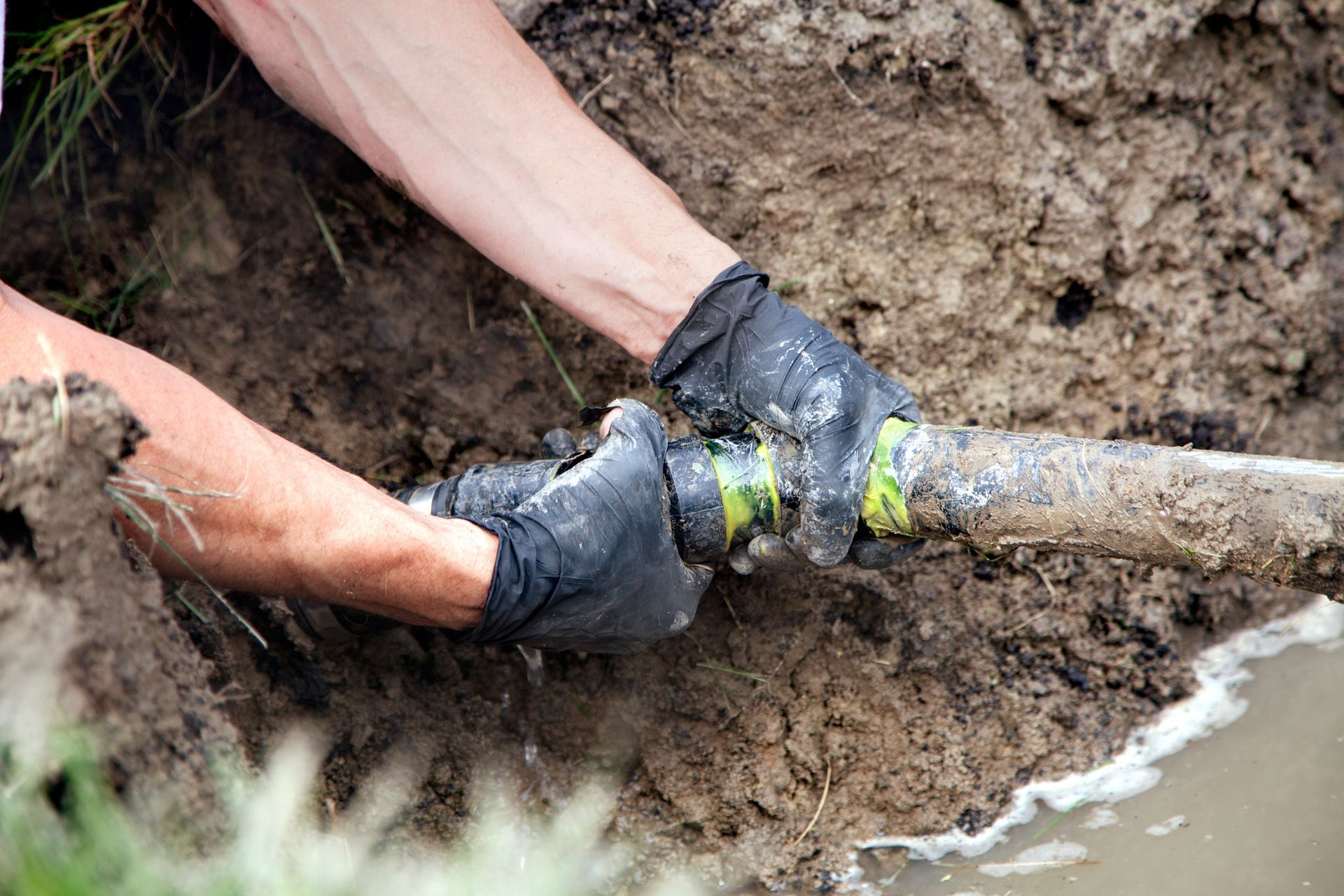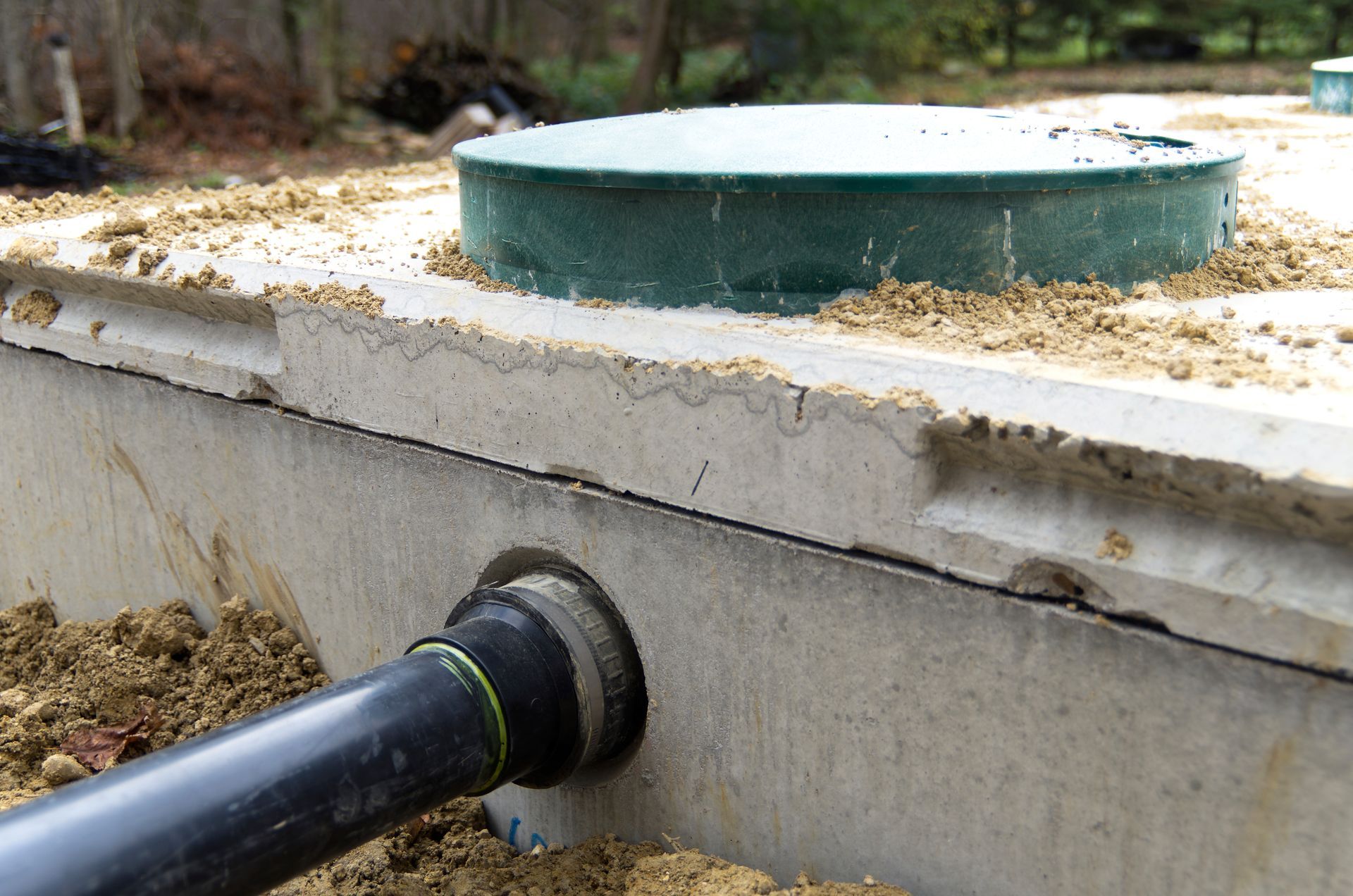Septic Tank Systems
Installations, & Repair
Whether you're installing a septic system in a new home, or replacing an existing septic tank, it is a costly and potentially stressful job. We want you to understand the process of installing a conventional gravity-powered septic system.
Installing a septic tank is not a task to undertake lightly. There are regulatory issues that must be addressed, you'll often have to get a permit from your local town, and there are plumbing and environmental issues to consider. You'll want to work closely with a company that can help you make the right choices for your budget.
Evaluating Your Site
We will begin by determining how large of a drainage field and septic tank you need. This decision will be influenced by an estimate of how much wastewater your house is likely to produce (generally based on the number of bedrooms), and by an analysis of the soil in your yard.
Installing the holding tank
Before choosing the location to install your septic tank, we will need to check local regulations and the soil quality. Most municipalities require tanks and leaching fields to be located a minimum distances from houses, wells, streams, etc. The size of your septic system will depend as well on how many bedroom you house has (including any you plan to add down the road!) Since septic tanks are stored below ground, tank installation generally requires a backhoe to dig an adequate hole. Inlet and outlet pipes must also be planned for an laid during initial installation.
To ensure that you can find the opening to the septic tank easily, it is recommended that you use a manhole riser to bring the cover near the surface of the soil.
Installing the leaching field
The size of your leaching field depends on a number of factors, including the size of your septic tanks, the type and absorptive capactity of your soil, and the particular technology that you've chosen to absorb the wastewater. We can help you through this process.
The exact location of your leaching field within your yard will vary, based on a number of factors, including local regulations, the slope of your yard and your home's location on that slope, and the composition of the soil in different parts of the yard.
The best septic tank repair is prevention, but even the most well cared for system will fail at some point. Whether the damage is due to age or something unexpected, a septic repair must be assessed and carried out quickly, yet with expert precision, before more serious damage can occur. That’s why we respond fast when they we from our clients.
Common Septic Tank Repair Needs
Hands down, the most common septic tank repair issues come about because proper maintenance wasn’t carried out on a system. A typical residential system needs to be pumped every 3-5years, but it’s necessary to do it more often if the household has a lot of people or if the house has a garbage disposal. Commercial systems need to be pumped out every couple of months, as determined by your current schedule and the number of gallons pumped at your recent appointments. Failure to maintain a system can result in:
§ Clogged lines
§ An overflowing tank
§ Sewage backups into your home
§ Damage to the tank
§ A clogged leach field/ drain field

Other Types of Septic System Repair
At the same time, age can make septic repair necessary as well. Residue can build up over time, which may result in a slow or sluggish leach field.. Invasive root systems, however, present an even more difficult challenge, as they invade pipes and tanks, requiring more extensive septic repair. Other types of septic system repair that you may face include:
§ Replacing septic tank covers
§ Repairing damaged lines
§ Repairing cracks in the tank
Septic Tank Repair vs. New Septic System Installation
Septic systems are designed to last decades, and with proper care, can even serve generations. Of course, much of the longevity of a system also has to do with the type of material it is created from, as well as the surrounding soil and water. Oftentimes, we can make repairs that will allow a system to provide many more years of service, but if the repairs are extensive, it may be more cost-effective to perform a new septic system installation. If this is the case, we can give you the information you need to make an educated decision. If you choose to go with the new septic system installation, we can help with this as well.








